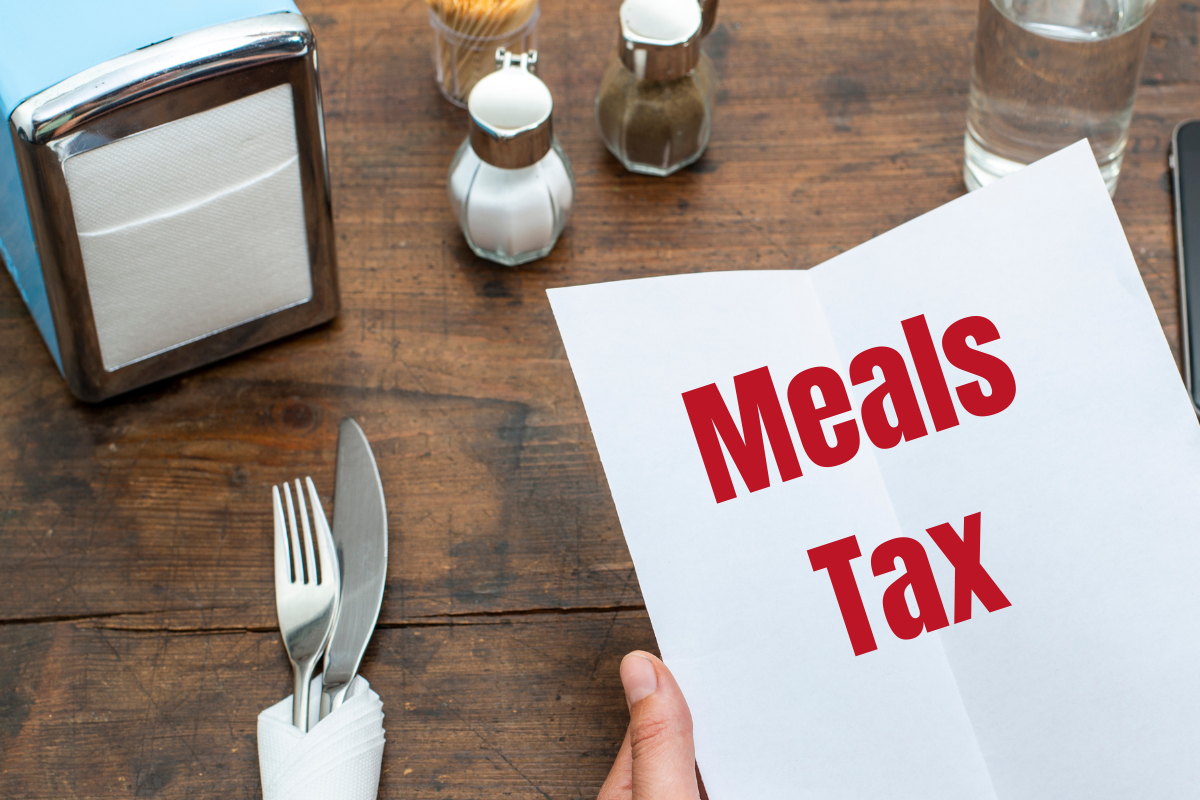
By Scott McCaffrey, Published December 11, 2024 at 3:45PM on FFXNow.com
Decision day is drawing closer, but Fairfax County leaders aren’t yet committing one way or another on whether to implement a meals tax as part of their upcoming budget deliberations.
Even if one is imposed, it won’t be the cure-all to the county government’s funding challenges, with a $292.7 million gap between anticipated revenues and expenses that must be filled in the coming year, one top official says.
Board of Supervisors Chairman Jeff McKay briefly touched on the meals tax proposal during a meeting yesterday (Tuesday) between the board and Fairfax County’s representatives in the Virginia Senate and House of Delegates.
As has been the case in other public venues, McKay didn’t indicate which way he or his colleagues might be leaning on the possibility of adding Fairfax to the ranks of Virginia localities taxing meals from restaurants and other food service establishments up to 6%.
While a meals tax “is not the solution, it may be part of the solution” to the budget, the board chair said.
County officials estimate that, if enacted, a meals tax would provide $33 million annually for every percentage point added atop the state/local sales sales tax. At the maximum 6%, that would equate to $198 million.
County Executive Bryan Hill has also suggested hotel, admissions and probate taxes as options for boosting revenue without further increasing the tax burden on property owners.
Given the county government’s current annual general fund budget is about $5.45 billion, a meals tax is “not a significant number, but not a panacea,” McKay said at the Dec. 10 event. No other elected official addressed the matter at the 90-minute session.
Until a few years ago, state law required Fairfax County to hold a voter referendum before imposing a meals tax. The measure was defeated twice at the ballot box, but in 2020, when Democrats controlled both the legislative and executive branches in state government, that requirement was dropped.
Supporters have contended that a meals tax will diversify Fairfax’s tax structure, reducing an overreliance on property taxes. The restaurant industry has already mounted a campaign to oppose the potential tax, and other opponents argue it would provide more fuel for increasing government spending, not lower the tax burden on residents.
Hill is slated to propose his fiscal year 2026 budget plan in mid-February. A final decision on whether to adopt a meals tax will rest with the Board of Supervisors, which must adopt a new budget in May.
If a meals tax is implemented as part of the fiscal year 2026 budget, which takes effect on July 1, 2025, its implementation would be delayed until Jan. 1, 2026, county officials say.
